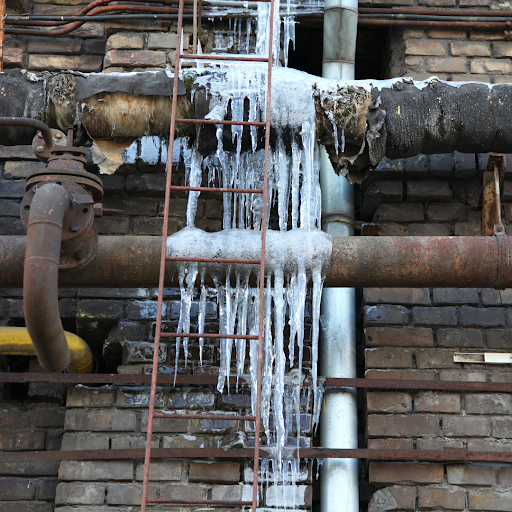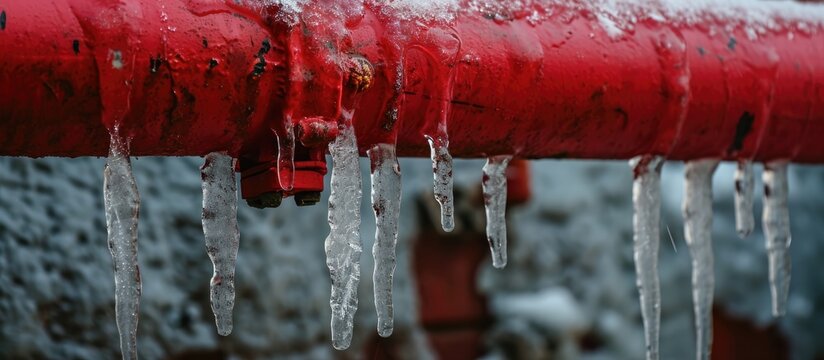Key Approaches for Preventing Frozen Plumbing in Cold Weather
Key Approaches for Preventing Frozen Plumbing in Cold Weather
Blog Article
This article in the next paragraphs about Helpful Tips to Prevent Frozen Pipes this Winter is really enlightening. You should look it over.

Winter can wreak havoc on your pipes, especially by freezing pipes. Here's exactly how to prevent it from occurring and what to do if it does.
Introduction
As temperature levels drop, the danger of icy pipes rises, potentially causing costly repair services and water damages. Comprehending exactly how to stop icy pipes is vital for homeowners in cold climates.
Avoidance Tips
Shielding vulnerable pipes
Wrap pipes in insulation sleeves or utilize warm tape to secure them from freezing temperature levels. Concentrate on pipelines in unheated or outside locations of the home.
Home heating methods
Keep interior areas properly heated up, especially locations with plumbing. Open up cabinet doors to allow cozy air to circulate around pipes under sinks.
How to determine icy pipes
Search for reduced water flow from faucets, uncommon smells or noises from pipelines, and noticeable frost on subjected pipes.
Long-Term Solutions
Structural changes
Think about rerouting pipes away from outside wall surfaces or unheated locations. Include additional insulation to attic rooms, basements, and crawl spaces.
Updating insulation
Buy high-grade insulation for pipes, attic rooms, and wall surfaces. Proper insulation assists keep regular temperatures and decreases the risk of frozen pipes.
Securing Outside Plumbing
Garden hoses and outdoor taps
Separate and drain pipes garden hoses prior to winter months. Mount frost-proof spigots or cover outdoor taps with protected caps.
Recognizing Frozen Pipes
What triggers pipes to ice up?
Pipes ice up when subjected to temperatures below 32 ° F (0 ° C) for extended durations. As water inside the pipes ices up, it broadens, taxing the pipe wall surfaces and potentially triggering them to break.
Risks and problems
Frozen pipelines can cause water supply disturbances, property damage, and pricey repairs. Burst pipelines can flooding homes and cause extensive architectural damage.
Indicators of Frozen Pipeline
Recognizing frozen pipelines early can stop them from bursting.
What to Do If Your Pipelines Freeze
Immediate activities to take
If you believe icy pipes, maintain faucets open up to eliminate pressure as the ice thaws. Use a hairdryer or towels taken in hot water to thaw pipelines gradually.
Final thought
Preventing frozen pipelines requires positive actions and quick actions. By understanding the causes, indications, and preventive measures, homeowners can safeguard their pipes throughout cold weather.
Helpful Tips to Prevent Frozen Pipes this Winter
UNDERSTANDING THE BASICS: WHY PIPES FREEZE AND WHY IT’S A PROBLEM
Water freezing inside pipes is common during the winter months, but understanding why pipes freeze, and the potential problems it can cause is crucial in preventing such incidents. This section will delve into the basics of why pipes freeze and the associated problems that may arise.
THE SCIENCE BEHIND FROZEN PIPES
When water reaches freezing temperatures, it undergoes a physical transformation and solidifies into ice. This expansion of water as it freezes is the primary reason pipes can burst. As the water inside the pipe freezes, it expands, creating immense pressure on the walls. If the pressure becomes too great, the pipe can crack or rupture, leading to leaks and water damage.
FACTORS THAT CONTRIBUTE TO PIPE FREEZING
Low Temperatures: Extremely cold weather, especially below freezing, increases the risk of pipes freezing. Uninsulated or Poorly Insulated Pipes: Pipes located in unheated areas, such as basements, crawl spaces, or attics, are more prone to freezing. Insufficient insulation or lack of insulation altogether exacerbates the problem. Exterior Wall Exposure: Pipes running along exterior walls are susceptible to freezing as they encounter colder temperatures outside. Lack of Heating or Temperature Regulation: Inadequate heating or inconsistent temperature control in your home can contribute to frozen pipes. PROBLEMS CAUSED BY FROZEN PIPES
- Pipe Bursting: As mentioned earlier, the expansion of water as it freezes can cause pipes to burst, resulting in significant water damage.
- Water Damage: When pipes burst, it can lead to flooding and water damage to your property, including walls, ceilings, flooring, and personal belongings.
- Structural Damage: Prolonged exposure to water from burst pipes can compromise the structural integrity of your home, leading to costly repairs.
- Mold and Mildew Growth: Excess moisture from water damage can create a favorable environment for mold and mildew growth, posing health risks to occupants.
- Disrupted Water Supply: Frozen pipes can also result in a complete or partial loss of water supply until the issue is resolved.
WHY CERTAIN PIPES ARE MORE PRONE TO FREEZING
- Location: Pipes located in unheated or poorly insulated areas, such as basements, crawl spaces, attics, or exterior walls, are at higher risk of freezing.
- Exterior Pipes: Outdoor pipes, such as those used for irrigation or exposed plumbing, are particularly vulnerable to freezing as they are directly exposed to the elements.
- Supply Lines: Pipes that carry water from the main water supply into your home, including the main water line, are critical to protect as freezing in these lines can affect your entire plumbing system.
- Underground Pipes: Pipes buried underground, such as those connected to sprinkler systems or outdoor faucets, can be susceptible to freezing if not properly insulated.
https://busybusy.com/blog/helpful-tips-to-prevent-frozen-pipes-this-winter/

As a fervent reader about 6 Ways to Prevent Frozen Pipes, I assumed sharing that chunk was mandatory. In case you appreciated our post kindly make sure you remember to share it. We thank you for reading our article about Preventing and dealing with frozen pipes.
Try Here Report this page